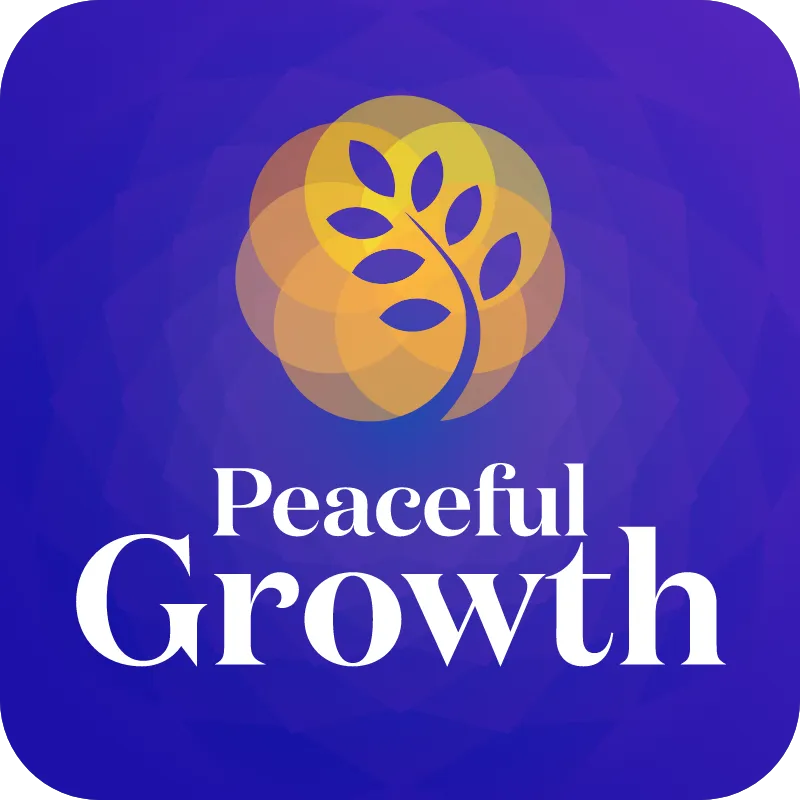3 Tips for Founders to Handle the Stress of Letting Someone Go
Welcome to Peaceful Growth, where you will find actionable tips to grow your agency to $10M (without working overtime).
In this issue, you'll learn:
- 3 tools to help you manage the (before and after) stress or guilt of letting someone go from your company
- An email-based course for founders to learn world-class copywriting and boost sales
In one of our monthly scorecard review meetings, I asked my Director of People Operations—a rockstar who leads our HR operations—how she was doing.
You know, the usual: "How are you?"
Her response caught me off guard.
"Do you want the social version—'I’m doing good! And you?'—or do you want to hear how I really feel?"
I knew something wasn’t right.
For the past few months, she’s been on the front lines, delivering bad news to few team members who either didn’t align with our future vision or weren’t A players.
It’s a tough job. I’ve been there. Done that.
Stressful.
Emotional.
But I’m so proud of her. And I have full empathy for how heavy this responsibility can feel.
So, I shared a few tips and frameworks to help her cope with these tough situations.
Here’s what I shared:
You Do Whatever it Takes to Keep Your Top Performers
Think about this: How many times have you fought tooth and nail to not lose someone exceptional?
You’ve begged, stretched budgets, and gone above and beyond to keep your A-players.
If someone hasn’t made themselves, "can't afford to lose type of team member", it’s not on you—it’s on them.
- If they’re an A-player, you’ll know it. Fight for them.
- If they’re not, letting them go isn’t cruelty—it’s clarity.
- And if they think they’re an A-player but you don’t? Trust they’ll land on their feet fast.
Remember: The best teams only win because they’re made of the best players.
I find comfort in this quote from The Road Less Stupid whenever I doubt my decision to let someone go due to performance issues.
If your employees don’t have to beg for their salary every month, why should you, as the founder, have to beg for performance?
Holding on to Low Performers is Quietly Hurting Them
It might feel like the right thing to keep under-performers around—just so they have a job.
But is it the right thing, or just the easy thing?
Here’s the truth: Once someone is marked as a C or D player, they stop receiving meaningful opportunities.
They’re given low-level tasks just to keep them busy.
This stifles their potential for growth and development.
Letting them go might be hard now, but it’s fairer to their future selves.
Kensho: Growing Stronger Through Pain
If the guilt of letting someone go is weighing you down, this might bring you some relief.
In Japanese Zen, there’s a concept called Kensho—growth through challenges.
It’s the kind of transformation that comes from heartbreak, job loss, or personal crises.
Someone who loses their job may discover a new passion or career path.
A tough breakup may lead to self-discovery and resilience.
In his book Exponential Organizations, Salim Ismail shares fascinating Google’s discovery: Their best employees weren’t Ivy League graduates. They were individuals who had faced deep personal losses and turned those struggles into growth. These experiences shaped them into humble, open, and stronger team members.
There’s a term for this in psychology: Post-Traumatic Growth (PTG).
PTG refers to positive psychological change after highly stressful circumstances.
People often grow in five areas:
- Greater appreciation of life.
- Stronger relationships with other.
- Increased personal strength.
- New possibilities in life.
- Deeper spiritual or philosophical understanding.
Yes, it’s an emotional rollercoaster, but these experiences push them to transform.
Exercise: Reflect on 5 people you’ve fired in the last five years—where are they now? Chances are, they’ve grown stronger.
Firing someone is never easy, but reframing it as a moment for growth—for them and for you—can make it a little less stressful.
[On a totally different note, here’s something I’m excited to share to help you sharpen your copywriting skill as a founder in 2025]
How a simple email made millions for this small business (real story)
When CD Baby, a small online music store, sent its now-famous welcome email, something magical happened.
It wasn’t just a boring “thanks for your order” message. It was fun, quirky, and personal:
“Your CD has been gently taken from our CD Baby shelves with sterilized, gloves, placed on a satin pillow, and is now being carried to our private jet…”
Customers loved it.
They shared it.
It went viral.
That playful email helped transform a small indie store into a company that sold over $100 million in music (Google it).
Why? Because great writing sticks.
It creates experiences, builds trust, and drives sales.
Not just CD Baby—companies like Groupon and Basecamp have built their success on great copywriting. It’s a 24/7 sales rep that never sleeps.
As founders, we write every day—pitches, emails, job posts, tweets. But if our words don’t connect, we lose deals, customers, and time.
Here’s a good news: WRITING IS A SKILL. You don’t “have it”, you learn it.
If you can learn only one new skill in 2025, make it writing.
I’ve spent over $10,000 on writing courses, and out of all of them, I highly recommend CopyThat—an email-based copywriting course you can complete in just 30 minutes a day for 10 days.
Check it out here: CopyThat

That’s all for now—see you in the next issue!
— Anil Gupta
Did you enjoy this newsletter? Check out my other stuffs too:
- Subscribe to Learn + Grow for tips on leadership, health, and productivity to keep you at your best
- Subscribe to WP for Enterprises to learn how billion-dollar brands use WordPress
- Listen to Peaceful Growth Podcast for insights on how to grow your agency
- Hire Multidots to build or migrate your website in WordPress
- Try Google Docs style collaboration in WordPress with Multicollab
- Checkout collection of premium WooCommerce Plugins
- Feel stuck? Try 1:1 founder-to-founder mentoring. Ask anything: sales, marketing, people, growth. Pay only if I help. Schedule a free 15-min intro.
Follow me on Twitter/X: @guptaanilg
Connect with me on LinkedIn: @guptaanilg
Someone forwarded this message? Subscribe here.
In Case You Missed It
By the way, in my last issue, I shared “4 Hats Every Founder Should Learn to Wear.”

Founder Favorite Reads
- Grow Your Agency 10% Each Year Without Adding any New Customer or Team Member
- How I Recovered $145K Using Just Two Emails
- 15 Actionable Tips to Optimize Your Agency Spending and Maximize Profits
- 5 Cold Emails I Couldn’t Ignore
- Peaceful Growth: Lessons from $15M Domain Deal, The Money Ladder, Startup 101, and Why Founders Need Newsletters

Member discussion